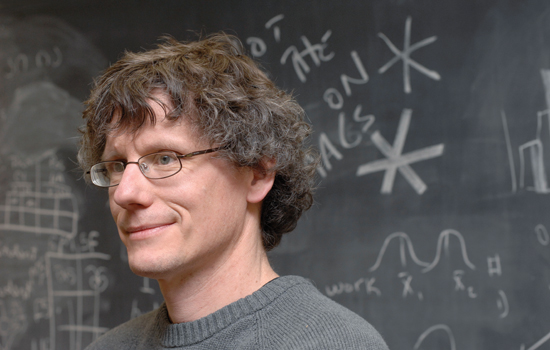Andrew Herbert: A strong ‘vision’ makes him successful
A. Sue Weisler
Andrew Herbert
Andrew Herbert, associate professor and chair of the psychology department, first became interested in the discipline while taking an undergraduate course on brain and behavior at McGill University in Montreal.
The passion he developed has driven his education and research work ever since—an enthusiasm he tries to transfer to his students through hands-on course work and participation in numerous research projects. For these efforts, Herbert has been named a 2009 winner of the Richard and Virginia Eisenhart Award for Excellence in Teaching.
“Through my early coursework at McGill I became fascinated with how the brain works and how it impacts behavior,” Herbert notes. “This ultimately led me to the study of visual perception and how the brain interacts with our senses to create perception—literally why humans see what they see.”
Herbert is currently the co-director of the Multi Disciplinary Vision Research Lab, a collaborative effort of the College of Liberal Arts and the Carlson Center for Imaging Science. His wide-ranging research includes studies on visual illusions, color perception and development of visual skills. He has partnered with numerous undergraduate and graduate students on these projects and also works to bring aspects of his scholarship into the classroom.
“I think many people see psychology and neuroscience as incredibly technical and complex disciplines,” adds Herbert. “Really, though, humans study each other’s actions and reactions constantly, which is the basis of psychological inquiry. By making concepts more relatable and understandable, I hope to ignite similar passions in my students that I developed at McGill and in grad school at University of Western Ontario.”
Through the vision lab and as chair of the psychology department, Herbert is also working to promote the field to the broader RIT community, recruit additional students and develop new bachelor’s and master’s degree programs.
“RIT’s expertise in engineering and imaging science offers numerous opportunities for coursework and research in engineering psychology, image perception and color perception,” says Herbert. “It is my hope we can continue to grow the Department of Psychology and further enhance multidisciplinary efforts both to advance research in the field and benefit RIT’s student body as a whole.”















